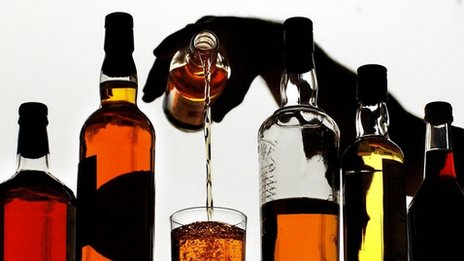- Home
- Editorial
- News
- Practice Guidelines
- Anesthesiology Guidelines
- Cancer Guidelines
- Cardiac Sciences Guidelines
- Critical Care Guidelines
- Dentistry Guidelines
- Dermatology Guidelines
- Diabetes and Endo Guidelines
- Diagnostics Guidelines
- ENT Guidelines
- Featured Practice Guidelines
- Gastroenterology Guidelines
- Geriatrics Guidelines
- Medicine Guidelines
- Nephrology Guidelines
- Neurosciences Guidelines
- Obs and Gynae Guidelines
- Ophthalmology Guidelines
- Orthopaedics Guidelines
- Paediatrics Guidelines
- Psychiatry Guidelines
- Pulmonology Guidelines
- Radiology Guidelines
- Surgery Guidelines
- Urology Guidelines
Two drinks per day for five years increase overall cancer risk by five per cent: Study

There is a consensus among scientists that alcohol drinking has links with several types of cancer. In its Report on Carcinogens, the National Toxicology Program of the US Department of Health and Human Services lists consumption of alcoholic beverages as a known human carcinogen.
Even light to moderate alcohol consumption was associated with elevated cancer risks is finding of a new study conducted in Japan. The overall cancer risk appeared to be the lowest at zero alcohol consumption. The study has been published online in CANCER, a peer-reviewed journal of the American Cancer Society.
Although some studies have linked limited alcohol consumption to lower risks of certain types of cancer, even light to moderate consumption has been associated with a higher risk of cancer overall. To study the issue in Japan, Masayoshi Zaitsu, MD, PhD, of The University of Tokyo and the Harvard T.H. Chan School of Public Health, and his colleagues examined 2005–2016 information from 33 general hospitals throughout Japan. The team examined clinical data on 63,232 patients with cancer and 63,232 controls matched for sex, age, hospital admission date, and admitting hospital. All participants reported their average daily amount of standardized alcohol units and the duration of drinking. (One standardized drink containing 23 grams of ethanol was equivalent to one 180-millilitre cup (6 ounces) of Japanese sake, one 500-millilitre bottle (17 ounces) of beer, one 180-millilitre glass (6 ounces) of wine, or one 60-millilitre cup (2 ounces) of whiskey.
Overall cancer risk appeared to be the lowest at zero alcohol consumption, and there was an almost linear association between cancer risk and alcohol consumption. The association suggested that a light level of drinking at a 10-drink-year point (for example, one drink per day for 10 years or two drinks per day for five years) would increase overall cancer risk by five per cent. Those who drank two or fewer drinks per day had an elevated cancer risk regardless of how long they had consumed alcohol. Also, analyses classified by sex, drinking/smoking behaviours, and occupational class mostly showed the same patterns.
The elevated risk appeared to be explained by alcohol-related cancer risk across relatively common sites, including the colorectum, stomach, breast, prostate, and oesophagus.
"In Japan, the primary cause of death is cancer," said Dr Zaitsu. "Given the current burden of overall cancer incidence, we should further encourage promoting public education about alcohol-related cancer risk."
For further reference log on to :
http://doi.wiley.com/10.1002/cncr.32590

Disclaimer: This site is primarily intended for healthcare professionals. Any content/information on this website does not replace the advice of medical and/or health professionals and should not be construed as medical/diagnostic advice/endorsement or prescription. Use of this site is subject to our terms of use, privacy policy, advertisement policy. © 2020 Minerva Medical Treatment Pvt Ltd